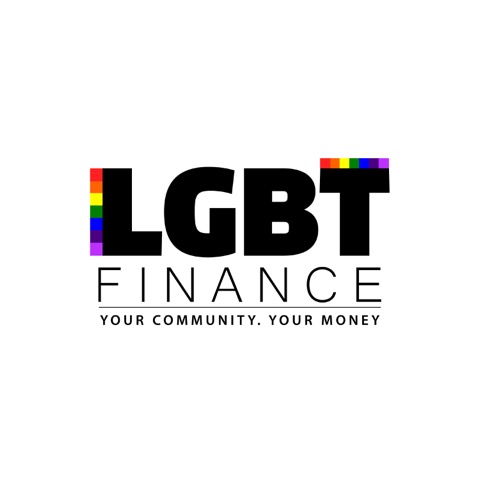Essex Pride is an all-weekend celebration of LGBT life in Essex and beyond on Saturday 22nd and Sunday 23rd June 2013, midday until midnight each day, at Central Park in Chelmsford.
The weekend will be more than just a huge party. It will inspire our community to embrace equality. It will demonstrate that local organisations and businesses, along with thousands of friends, can join together to celebrate diversity.
The whole event is free and unticketed except for the main stage and licenced bar area. Wristbands cost £10 online in advance or £15 on the day. Valid for the entire weekend. You must be over 18 to purchase.
Also: “One in Love” – Evening Prayer on Sunday 23 June at 6pm
Ascension Parish Church, Maltese Road, Chelmsford CM1 2PB
Join Changing Attitude (Chelmsford) for a short act of worship to coincide with Essex Pride. Evening Prayer followed by drinks and nibbles.
In Central Park in Chelmsford, from 2pm til 9:30, fantastic live entertainment: then from 9:30 to midnight, music from your favourite DJs on the Essex LGBT scene.
Campari is a mild bitters-type of aperitif, made to a secret recipe in Milan, and containing quinine, rhubarb, ginseng, orange peels and aromatic herbs.
These are combined and macerated in a blend of distilled water and alcohol for a couple of weeks. In Italy, they serve Campari in a frozen glass, without ice and with a splash of soda, so that when you add the soda, you release the flavours.
Two years on and it’s still difficult to decide if the Campari commercial (nicknamed “The Secret”) was a step forward or backward for the gender-queer movement.
Yes - a man whom we perceive as a woman being seduced by a woman we perceive as a man might prompt us to question gender-related assumptions, but the commercial concluded by plumping for heteronormativity as a means to a happy ending.
A study conducted by the Lesbian, Gay, Bisexual and Transgender Medical Education Research Group at Stanford’s School of Medicine in the United States has found that medical school curricula in the US and Canada devote an average of only five hours to the specific health care issues faced by lesbian, gay, bisexual and transgender patients. Students at a third of the 176 medical schools surveyed received no gay-related health care training at all.
The survey asked about 16 health issues of particular interest to the LGBT community. This training included sex reassignment surgery, inaccessibility of healthcare, safer sex and chronic disease. Just 8.3 percent of medical schools taught all 16 subjects.
The researchers say the failure to include these topics in medical school curricula exposes LGBT patients to significant health problems. For example, cervical cancer and genital human papillomavirus often go untreated in lesbians; transgender individuals who resort to unprescribed hormones while in the process of changing their sex risk infection and other side effects.
LGBT parenting, or pink parenting if you like, is more of a reality than ever before these days, and we all know someone who is one way or another, enjoying family life.
Challenging as family life is, it is sometimes made worse by social restrictions, opinions or mechanisms, some of which are simply not designed to cater for LGBT people; and that is where Pink Parenting magazine aims to help.
Now I know that straight people can’t keep their noses out of LGBT magazines, which is the way it should be, but if ever there was a case for obliging them to read an LGBT magazine, this would be it. Maybe it’s because parenting isn’t talked about enough, and maybe it’s because this magazine is so darn interesting. Normally, you see, I've found advice on parenting to be pretty thin on the ground, often just a column in a magazine, or worse still a leaflet, handed out in good faith, but containing nothing more than common sense.
A new US study published in the current issue of Applied Developmental Science shows that LGBT youth who go to schools with gay-straight alliances (GSA) have better mental health, are less likely to drop out of high school and more likely to attend college.
Published in the current issue of Applied Developmental Science, this is the first study to show that GSA participation is related to long-term benefits.
The study, ‘High School Gay–Straight Alliances (GSAs) and Young Adult Well-Being,’ is based on data from the Family Acceptance Project’s survey of LGBT young adults, which examined the school-related experiences of 245 LGBT young adults, ages 21 to 25. The Family Acceptance Project (familyproject.sfsu.edu) is a research, education and policy group that is designed to improve the health, mental health, and well-being of LGBT children and adolescents.
Previous research has shown that LGBT youth are at risk of school bullying based on their sexual orientation and gender expression; that LGBT youth and young adults report higher levels of depression and other mental health problems than heterosexual peers; and that LGBT school bullying is related to reduced academic achievement.
This is something of an unofficial Pride drink.
An internet search of the terms Pride and Cocktails tends to throw up news items concerning Lithuania’s first Pride march in Vilnius in 2010 – when a Molotov cocktail was thrown at the organiser’s building – even though it failed to ignite. But this is a bit more pleasant. And you will only have to throw bottles about the place if you're feeling abit Tom Cruisy about things...
To be fair, if one were devising a Pride cocktail, you’d be ideally looking for something that offered a rainbow theme, and this doesn’t do too badly, at least up until you start mixing it. The resulting colour can be anything from pink to purple, with some murky oranges in between.
Need Financial Advice?
For tailored advice to your situation, our (LGBT friendly) advisers will be happy to answer your questions...


